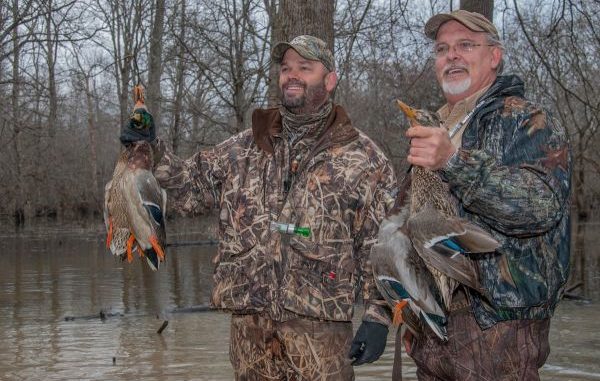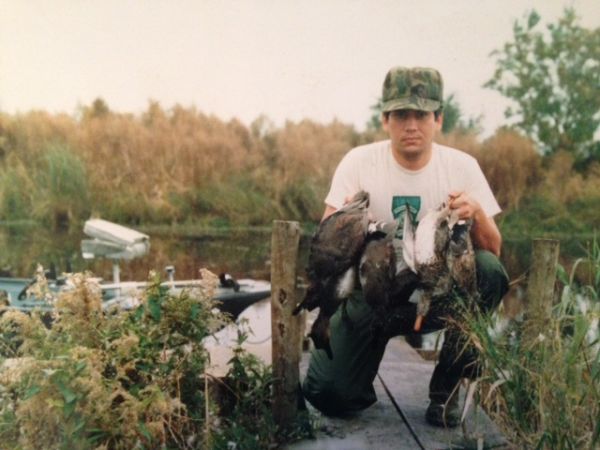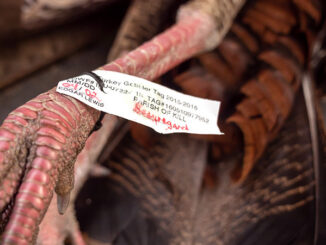
Changes have benefited duck populations
Duck and coot hunting seasons kick off in Louisiana this month, with the Coastal Zone opening on Nov. 9 followed by the West Zone opener on Nov. 16. East Zone hunters must wait for Nov. 23 to get going.
Check the 2013-14 regulations for complete duck and coot season dates, youth hunts and goose seasons.
Daily bag for ducks is six birds again this year. Possession limits are now three daily bag limits, a move from two daily bag limits that has been in the wind for several years.
The primary reason for this change was travel associated with waterfowl hunting, making it a bit easier for hunters on extended trips far from home. They may now bring home more birds from successful hunting trips.
Waterfowl enforcement in Louisiana has had an interesting and controversial history, and significant changes in waterfowl enforcement have evolved in the last 30 years. Most (but not all) have been good.
To understand those changes and evolution, we need to take a look back at the way things were.
As a young wildlife agent, I knew enough about duck hunting to realize that Louisiana sat at the bottom of the Mississippi Flyway, and received a significant number of wintering waterfowl from the Central Flyway, as well. That meant lots of ducks, so I just assumed many hours would be devoted to waterfowl enforcement.
As my first hunting season on the job approached, I thought it a little strange no one in the ranks said much about duck season. But being young and naïve, I figured working duck hunters to be such a common duty no one felt the need to talk about it.
So when opening day rolled around I was out early checking duck hunters. About mid-morning, I moved into an area where a healthy amount of shooting had gone on and checked four hunters.
Three hunters were over the limit on ducks. Naturally I was proud of my accomplishment, and could not wait to turn in the citations and arrest report to my supervisor.
So the next day, when I proudly submitted the case, I was surprised by a rather cool and unenthusiastic reception. Not at all able to figure out what was wrong, I talked to a couple of other agents about it and got a little better understanding.
It seemed that the consensus of some agents was that our efforts were better directed toward enforcement of regulations on resident wildlife: Let the feds worry about migratory birds. I did not care for that philosophy at all, wasn’t alone with that opinion and as time went on grew to understand the real reasons for the way things were.
First, Louisiana, when compared to other states, had an abundance of special agents of the U. S. Fish and Wildlife Service. Resident agents were located in Monroe, Lafayette, Denham Springs, Slidell and Lake Charles. They were better paid and better trained. They were also envied and mistrusted by many state agents. Their mission was largely misunderstood, and many state agents incorrectly believed all the feds had to worry about was ducks.

Second, state agents received no formal training in migratory waterfowl enforcement. Many failed to completely understand federal regulations on baiting, possession and tagging. Some could not even correctly identify the sex or species of different ducks.
I firmly believe the lack of knowledge and training to be the main reasons why many state agents avoided waterfowl enforcement; no one wanted to be embarrassed by not knowing what to do in a situation or by the hunter being more knowledgeable about the species.
But not all state agents shied away from waterfowl work. Many of us loved it and were pretty good at it. From my point of view, much of the appeal was effective prosecution.
State wildlife violations were and are submitted to the district attorney’s office for prosecution. Let’s just say at the time and in some parishes, prosecution could have been better.
But federal migratory violations went to U. S. Magistrate’s Court. Prosecution was fair, impartial and effective. The arresting agent was present in court for arraignment, trial and sentencing.
That’s much better for morale than finding out the deer poacher you stayed up all night to arrest got off with a $40 fine.
Another very significant benefit was contact with the federal agents. They receive federal migratory cases submitted by the state. They review the cases on behalf of the U. S. Attorneys Office, often conferring with the investigating state agent on ways to improve the case or follow-up investigations. They were also present at court for arraignments and trials. This contact and communication was beneficial to those of us willing to learn.
But events were lining up that would speed changes to migratory enforcement. USFWS Special Agent Dave Hall, stationed in Slidell, began a public education campaign to focus attention on waterfowl violations. Hall’s theory was that waterfowl poaching, although illegal, was socially acceptable. He was right about that.
The only way to stop the problem was to make it unacceptable. He began publishing information about poaching, exhibiting surveillance videos of massive illegal waterfowl kills and interviewing poachers apprehended for the violations.
Hall managed to convert some of those violators, calling them “poachers to preachers.” He interviewed them on camera, getting them to admit their crimes and explain the consequences.
Hall’s video documentaries caught the attention of a lot of hunters at the upper end of the Mississippi Flyway. A lot of angry northern fingers were pointing south, demanding better enforcement and protection for migratory game birds.
Tempers flared from one end of the Mississippi River to the other as southern states took issue with accusations of poor enforcement. In truth, many more arrests were made at the lower end of the flyway, but it was probably not due to a higher percentage of Southern hunters willing to violate the law. More likely it was due to per capita statistics.
Just as a large city has more crime because there are more people and more criminal opportunities, Louisiana, Arkansas and Mississippi had more violations due to more hunters and more ducks in the fall and winter.
Due to the controversy, the Mississippi Flyway Council — comprised of waterfowl biologists and managers from Canada — the states along the Mississippi and USFWS, made the long-overdue decision to include state and federal law enforcement officers in the council.
Thus was born the Mississippi Flyway Council Law Enforcement Committee. The committee’s mission is to advise the council on enforcement matters impacting migratory game bird management. I was appointed to the committee to represent Louisiana in 1993, and remained the Louisiana delegate until my retirement in 2011.
It did not take long for Law Enforcement Committee members to agree that state wildlife agents needed specialized training in migratory bird enforcement. Indiana had instituted a waterfowl enforcement course put together by veteran state officers and USFWS special agents. The course was a week of intense training on duck identification, federal migratory regulations, violation detection and advanced interview and investigative procedures.
The Law Enforcement Committee recommended to the Council that every state along the flyway establish waterfowl enforcement training. The Council approved the recommendation and directed the Law Enforcement Committee to implement the training.
The Indiana course was adopted as the waterfowl enforcement training model for all states in the flyway. By the late 1990s it was being taught in every flyway state. Today it is part of Louisiana’s training academy curriculum, and every cadet must successfully complete the course in order to graduate.
Benefits from waterfowl enforcement training were immediate and obvious. Veteran agents reluctant to work duck hunters were far more willing to do so after completing the course. No longer were they avoiding duck work due to an embarrassing lack of knowledge.
Baiting and big over limit violations have decreased over the years due to more aggressive and widespread enforcement, and the real winners are the ducks.
As mentioned early on, not all the changes (in my opinion) have been good. Not long after my retirement the decision was made in the LDWF Law Enforcement Division to no longer submit all federal migratory cases to the U. S. Attorney for prosecution in federal court.
Currently only the most serious offenses go to the federal system.
The majority of cases are now written as state infractions and, therefore, handled in state court. Admittedly, I have not looked at migratory case dispositions, convictions and prosecutions handled in state court. But I hope they are being vigorously prosecuted, as all wildlife offenses should be.
Have a Happy Thanksgiving and a great waterfowl season.


